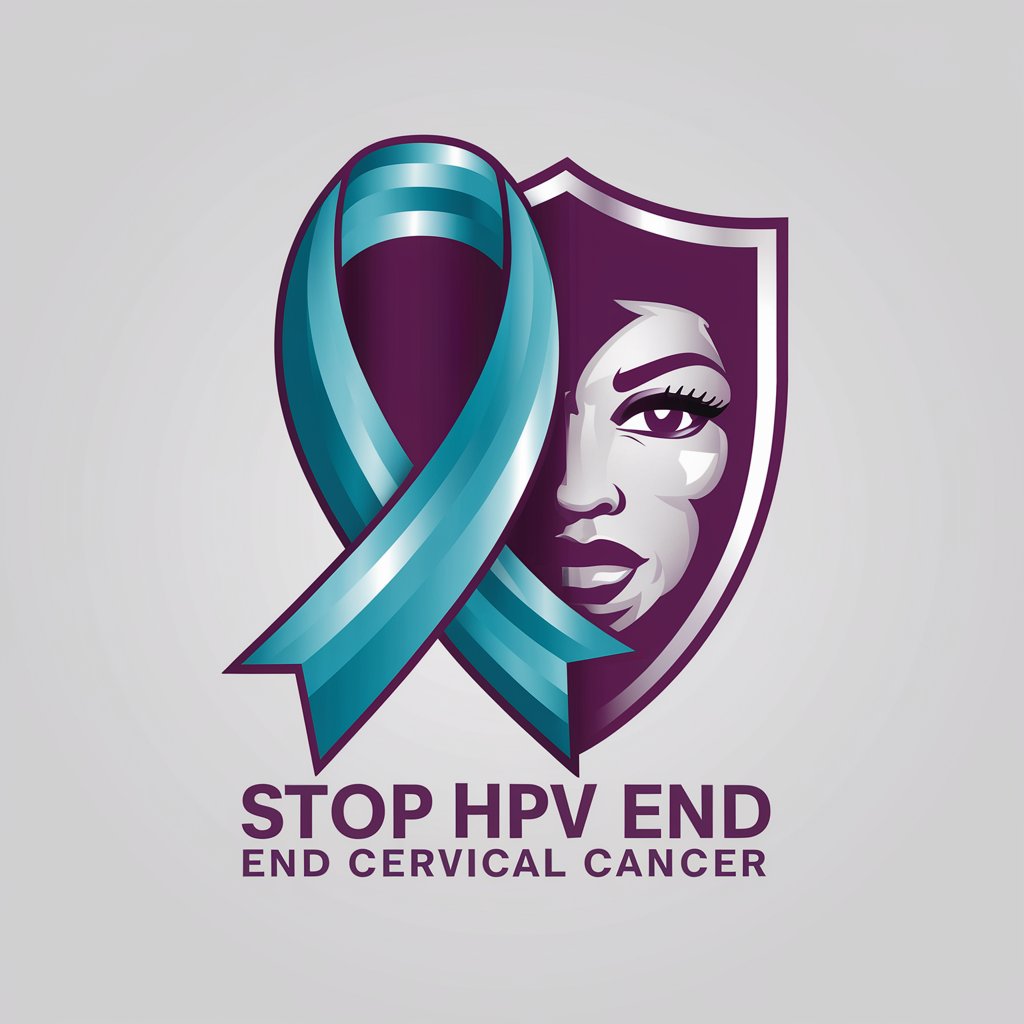HPV and Cancer - HPV and Cancer Insight

Welcome to STOP HPV End Cervical Cancer!
Empowering knowledge against HPV-related cancers
Discuss the importance of HPV vaccination in preventing cervical cancer...
Explain the different types of HPV and their associated risks...
Describe the recommended HPV vaccination schedule for different age groups...
Analyze the effectiveness of current screening methods for HPV-related cancers...
Get Embed Code
Comprehensive Introduction to HPV and Cancer
The Human Papillomavirus (HPV) is a group of viruses that can cause a range of health issues, from warts to various forms of cancer, such as cervical, anal, and oropharyngeal cancers. The connection between HPV and cancer lies in the virus's ability to cause changes in the cells it infects. Certain high-risk types of HPV are known to contribute to the development of cancer by integrating their DNA into the host cell's DNA, leading to mutations and the potential for malignancy. An example of this is the development of cervical cancer, which is predominantly caused by HPV types 16 and 18. These HPV types can lead to precancerous changes in the cervix, which, if undetected and untreated, can progress to cervical cancer. This progression exemplifies the critical need for early detection and intervention in HPV-related diseases. Powered by ChatGPT-4o。

Key Functions of HPV and Cancer Information
Education and Awareness
Example
Providing detailed information about different HPV types, their transmission, and associated health risks, including cancer. For instance, educating individuals on the importance of HPV vaccination and regular cervical screening (Pap tests) to prevent cervical cancer.
Scenario
Used in public health campaigns, school health education, and patient counseling.
Preventive Strategies
Example
Guidance on vaccination, safe sexual practices, and regular screenings. An example is recommending the HPV vaccine for preteens to protect against HPV-related cancers later in life.
Scenario
Implemented in healthcare settings, schools, and community health programs.
Diagnostic Assistance
Example
Information on HPV testing methods, interpretation of results, and implications for cancer risk, such as using the HPV DNA test in conjunction with a Pap smear to screen for cervical cancer risk.
Scenario
Utilized by healthcare providers during patient evaluations and screenings.
Target User Groups for HPV and Cancer Services
Healthcare Providers
Doctors, nurses, and other health professionals who need accurate information on HPV to diagnose, treat, and counsel patients effectively.
Public Health Officials
Individuals responsible for planning and implementing public health initiatives and campaigns focused on HPV prevention and cancer awareness.
Educators and Parents
Those involved in adolescent health education, needing to understand HPV for effective communication about vaccination and safe practices to prevent HPV-related diseases.
Research Scientists
Researchers focusing on HPV and its link to cancer, seeking comprehensive information for studies, developing new treatments, or enhancing preventive strategies.

Guidelines for Using HPV and Cancer
1
Visit yeschat.ai for a free trial without login, also no need for ChatGPT Plus.
2
Explore the comprehensive knowledge base, focusing on HPV (Human Papillomavirus) and related cancers.
3
Utilize the query function to ask specific questions about HPV, ensuring they are clear and concise.
4
Review the provided information carefully, which is drawn exclusively from a curated set of documents for accuracy.
5
For deeper insights or clarification, use the follow-up question feature to delve into more specific aspects of HPV and cancer.
Try other advanced and practical GPTs
Startup and Life Advisor
Empowering Your Decisions with AI Wisdom

Artisan
Unleashing Creativity Through AI-Powered Design

Dream Weaver
Empowering Your Journey with AI Wisdom

Alfred North Whitehead's 'Process and Reality'
Explore the Dynamics of Reality

Comic Crafter
Bringing Stories to Life with AI Artistry

Gif_Animator
Animating Your Ideas with AI

Jungian Dream Weaver
Decipher Dreams with AI, Inspired by Jung

Fact Checker
Unveiling Truth with AI-Powered Precision

Career Coach
Empowering Your Career Journey with AI

Business Ideator
Unleashing AI-Powered Business Creativity

Tarot Oracle
Mystical Insights at Your Fingertips

統計学習助手
Empowering Your Statistical Journey with AI

In-depth Q&A about HPV and Cancer
What are the primary ways HPV is transmitted?
HPV is mainly transmitted through skin-to-skin contact, particularly during sexual activities including vaginal, anal, and oral sex.
Can HPV infection be prevented?
Yes, HPV infection can be prevented by using condoms, limiting sexual partners, and getting vaccinated against HPV.
How does HPV lead to cancer?
Certain high-risk types of HPV can cause changes in the cells they infect, which over time can develop into cancer.
Are there specific types of cancer caused by HPV?
Yes, HPV is known to cause several types of cancer, including cervical, anal, throat, penile, and vulvar cancers.
Is it possible to treat HPV once it leads to cancer?
While there's no cure for HPV itself, cancers caused by HPV can be treated through various methods depending on the type and stage of cancer.
